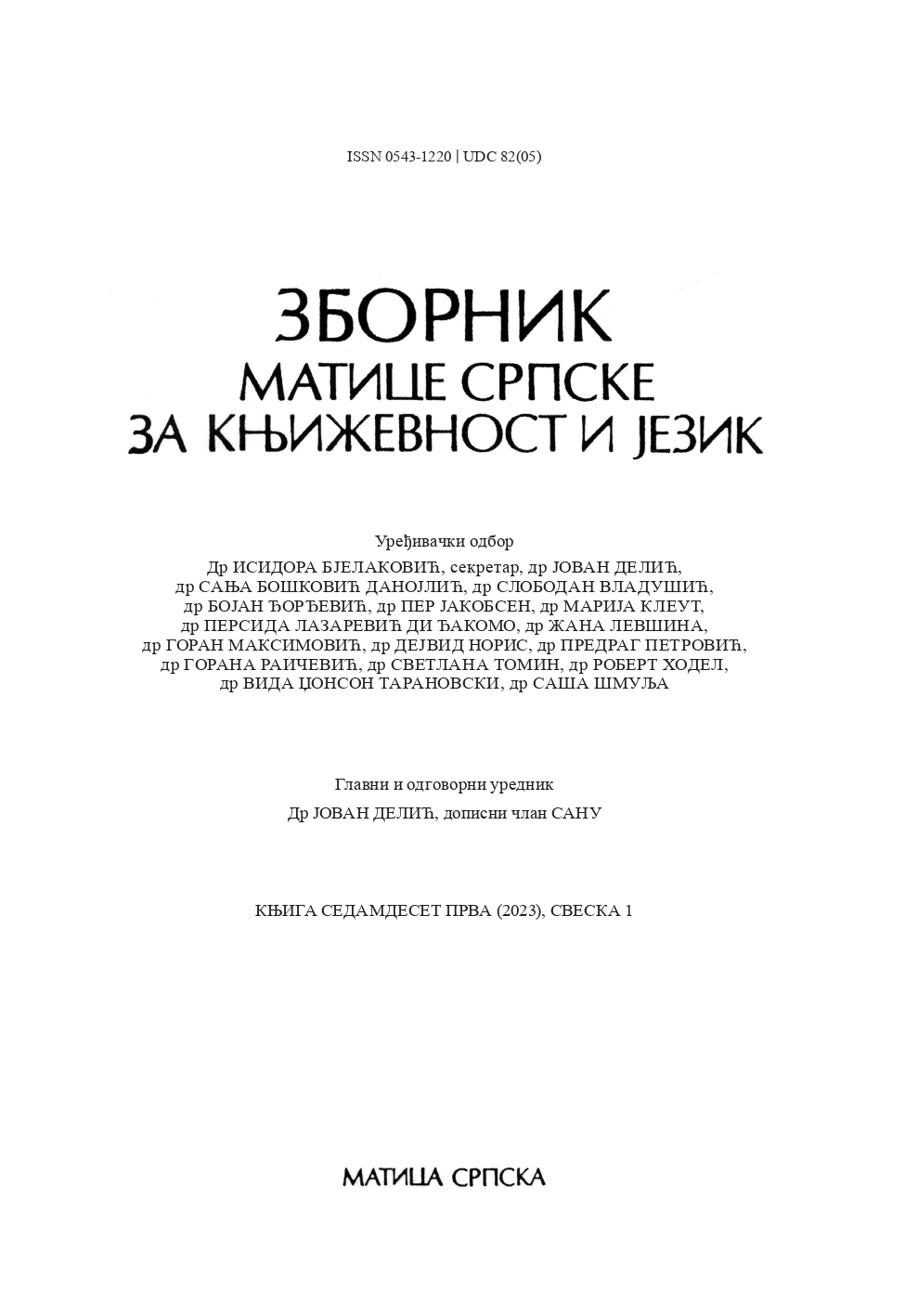СУБЈЕКТ КОСМОГОНИЈСКО-МЕТАФИЗИЧКОГ ЗНАЊА У ПОЕЗИЈИ ВАСКА ПОПЕ И РАДОВАНА ПАВЛОВСКОГ
THE SUBJECT OF COSMOGONIC-METAPHYSICAL KNOWLEDGE IN THE POETRY OF VASKO POPA AND RADOVAN PAVLOVSKI
Author(s): Goran P. KorunovićSubject(s): Language and Literature Studies, Studies of Literature, Serbian Literature
Published by: Матица српска
Summary/Abstract: After describing conditions and motives for the comparative analysis of the poetry of Vasko Popa and Radovan Pavlovski, configuration of the propositional instance in The Star Wizard’s Legacy, the opening poem of Popa’s collection Secondary Heaven, is interpreted. This interpretation is performed through a dialogue, with the conviction that in the collection Secondary Heaven only the persona of the Star Wizard is present. However, the analysis shows a variety of identity omens of the lyrical subject in Secondary Heaven. Its manifestations range from a defender of the Star Wizard’s metaphysical authority, through the phonocentric position that seeks to mediate the Star Wizard’s knowledge, to dialogically structured poems in which the lyrical we and the non-human, cosmic entities correspond. Secondary Heaven also contains a discrete apotheosis of the poetic act and the position of the poet, partly in Heideggerian key. In Radovan Pavlovski’s collections Grains and Lightning, a monadic and essentialist understanding of the cosmogonic-metaphysical order is manifested, bearing in mind that this order is more complexly artistically mediated in Lightning. The nature of Lightning is presented ambivalently and with a suggestion of its retreating before discursive descriptions. Nevertheless, just like Popa, Pavlovski finds a way to point out the privileged place of poetic speech when evoking the metaphysical fabric of existence. It is indicated that the singled out collections of Popa and Pavlovski are an example of how, at the time of the rise of the relevance of neo-avant-garde poetics and postmodernist worldviews, modernist renewals of the complexity of poetry and metaphysics are carried out. At last, the difference between the poetics of the Serbian and Macedonian writers is that in Popa’s poems there is a specific and constant tendency to accept the cosmogonic-metaphysical “seriousness” and to lower it humorously, sometimes even to the point of denial.
Journal: Зборник Матице српске за књижевност и језик
- Issue Year: 71/2023
- Issue No: 1
- Page Range: 161-178
- Page Count: 18
- Language: Serbian

